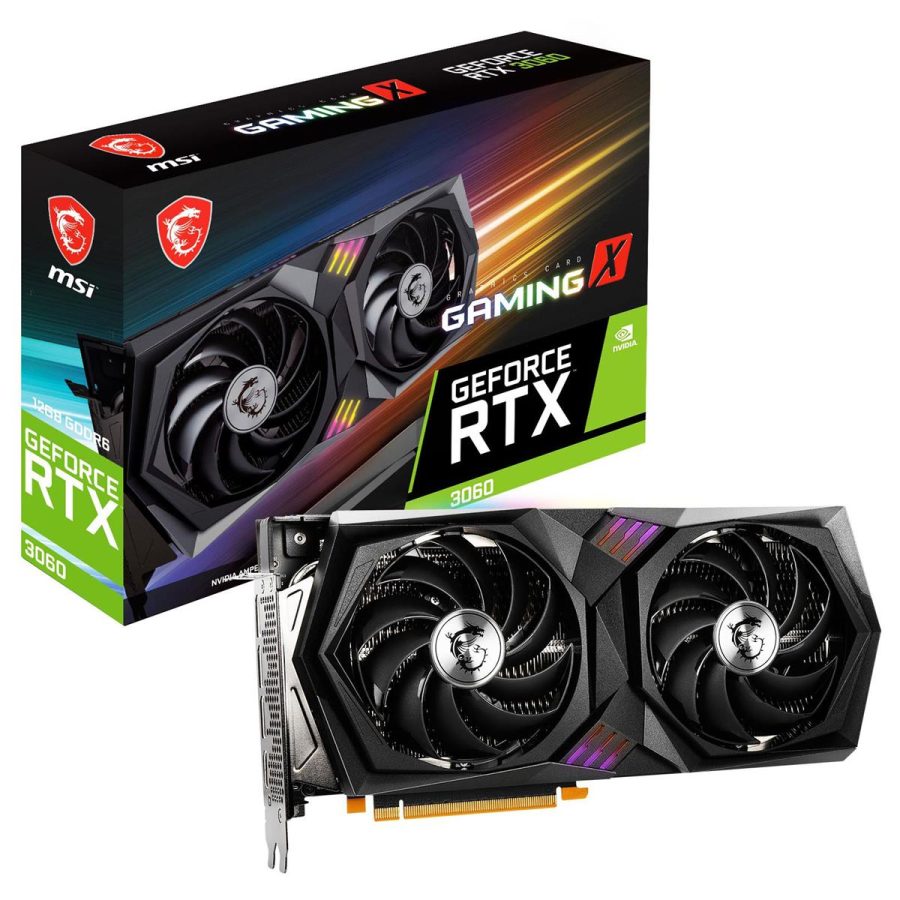How to choose the best graphics card for your PC?
It’s almost 2022 and you might have realized the importance of having a graphics card on your PC by now.
Whether it’s gaming or working on professional applications, you need a proper GPU. You can even benefit from picking the right graphic card for simply browsing and enjoying movies at ultra-high resolutions.
Graphics card or otherwise known as Graphics Processing Unit (GPU) is one of the top-priority components of a computer. This tends to be quite true when it comes to gaming.
That’s why gamers are often spending hours researching, trying to figure out the best GPU for their systems. So, why does it matter to pick the right graphics card and how do you choose a graphics card?
Why does your graphics card matter?
A GPU is actually responsible for displaying the images, scenes, and animations that we see on our screens. It handles processing and renders visual elements on your display. In the earlier days, these tasks were handled by the CPU (Central Processing Unit).
However, now only a select few offer these features. And those that do aren’t as powerful as a GPU.
Almost every modern game today requires a graphics card. Games such as Cyberpunk, GTA V, or Assassin’s Creed at a pleasant 1080p resolution, demand a robust GPU. And at 4K resolution, you will undoubtedly need an even more powerful GPU. You can head on over to SysRqmts to find if you can run it.
A graphics card is also a necessary component in using professional applications such as Photoshop, Premiere Pro, After Effects, AutoCAD, Solidworks, etc. The processes such as 3D rendering or video editing benefit from the computing powers of a GPU. These tasks get incredibly sped up and get completed within minutes, which would have otherwise taken hours. You could, however, benefit most from GPUs designed specifically for such applications.
Different Types of Graphics Cards
How to choose a graphic card depends on the function you will be using it for. GPU intensive games coming out these days require at least 6 GB of graphics card RAM. The same goes for professional applications. However, if your usage is simply just emailing or surfing the web, you can opt for an entry-level card. So, to pick the right graphics card, you need to know the differences between different GPUs out there.

Integrated vs Discrete GPUs
Integrated graphics cards are more common in limited spaces or smaller form factors such as in Laptops.
They are suitable for lighter and non-gaming intensive tasks such as web surfing or video streaming.
They are integrated into the same chip as the CPU. Discrete GPUs, on the other hand, are kept separate from the processor and handle GPU-intensive tasks.
Integrated
Pros
- Doesn’t consume too much power
- Doesn’t heat as much as discrete
- Preferred for simpler visual tasks
- Budget-friendly
Cons
- Not preferred for graphic intensive gaming
- Uses the VRAM (video memory) of the computer
Discrete
Pros
- Highly recommended for gaming and professional use
- Have their own independent RAM
- Can deliver high performances
Cons
- Consumes more energy and battery life
- Require a good cooling system to prevent overheating
Mobile vs Desktop
Mobile GPUs in a laptop are for gamers who like portability and prefer gaming on the go.
They are better than integrated GPUs and most newer cards can deliver similar performances to their desktop counterparts.
However, that does mean you will have to pay a premium price for such cards.
Mobile
Pros
- Easy portability
- Better than integrated GPUs
- Can deliver performances on-par to their desktop counterparts
Cons
- Can be very expensive
- Face thermal and space limitations
- Can make laptop quite heavy
Desktop
Pros
- More affordable
- Can deliver higher performances
- Have more space for better cooling
Cons
- No option for Gaming-on-the-go
Nvidia vs AMD
AMD and Nvidia are the only 2 manufacturers of graphic cards in the whole world. Many GPU guides are dedicated to comparing similar cards of these 2 giant companies.
They both offer great variants, and you can choose a graphics card that best takes care of your gaming needs.
Nvidia
Pros
- Offers Ray Tracing and DLSS features
- Outperforms AMD in many instances
- Features are more advanced than AMD
Cons
- Are usually more costly
- Have a poorer availability
AMD
Pros
- Fidelity FSR feature
- Have a better availability
- More preferred in budget-friendly builds
Cons
- Doesn’t have as many features as Nvidia
- A mid-tier best card can be more expensive than an Nvidia counterpart
5 Useful Tips to Choose the Right GPU
Now that you have some idea of why graphics cards matter and what types of GPUs are out there, here are 5 tips that can help you in choosing a GPU for your system.
- Avoid bottlenecking
It’s no use getting the best GPU if the rest of your PC components can’t keep up with it.
- Match your monitor specs
Budget monitors are usually capped at 1080p and 60 Hz refresh rates. If you own a good GPU, you might not be able to benefit from its higher-resolution display capability or higher refresh rates.
- Get a decent PSU or Power Supply Unit
A cheaper PSU might cause fire and destroy your expensive setup. Also, if your PSU doesn’t have enough wattage, your system will face restarts whenever the power gets exceeded.
- Get a card with decent RAM
You will need a card with at least 6 GB of RAM to run most games at 1080p resolution.
- Don’t count on overclocking your GPU
Overclocking is a risky and complex process that also voids the warranty in case of failure. Besides, you might not be getting a boost of more than 5-10%.
To Conclude
GPUs are one of the most important components in any computer system. They are responsible for displaying anything that shows on our screens. They can be integrated into a CPU or be kept separate in the form of discrete GPUs.
The discrete versions outperform their integrated counterparts and are highly recommended for graphics card intensive gaming. Currently, there are 2 big manufacturers of GPUs: AMD and Nvidia. They both provide excellent options and one can choose the best GPU depending on their usage.
Hopefully, this GPU guide might have helped you in choosing a GPU. If you have chosen one, you can test if you can run your favorite games on SysRqmts.






 Your total news and information resource for all things Science, Technology, Engineering / Mathematics, Art, and Medicine / Health.
Your total news and information resource for all things Science, Technology, Engineering / Mathematics, Art, and Medicine / Health.
Leave a Comment